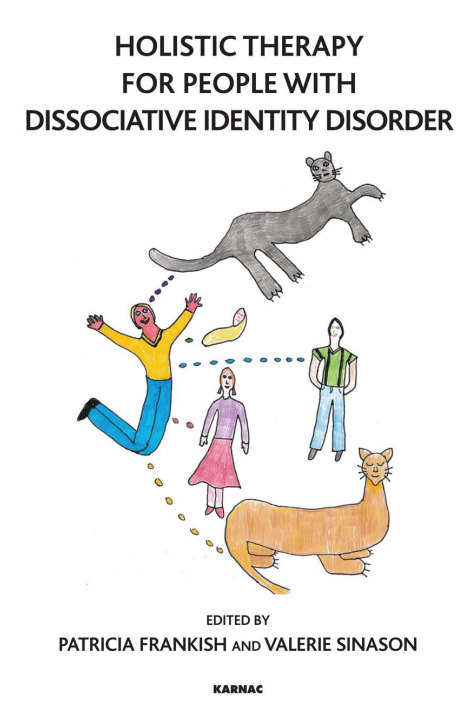

Holistic Therapy for People with Dissociative Identity Disorder by Karnac - Complete Book Summary
\"Holistic Therapy for People with Dissociative Identity Disorder\" published by Karnac represents a comprehensive and innovative approach to understanding and treating one of the most complex and challenging psychological conditions, presenting evidence-based therapeutic strategies that integrate traditional psychotherapy with complementary healing modalities to address the multifaceted needs of individuals living with Dissociative Identity Disorder (DID) and other severe dissociative conditions resulting from chronic childhood trauma and abuse. This groundbreaking resource acknowledges that treating DID requires more than conventional talk therapy alone, advocating for a holistic framework that encompasses mind, body, and spirit healing approaches to address the profound fragmentation and disconnection that characterizes this condition, while recognizing that survivors of severe early trauma often benefit from therapeutic interventions that honor their complete human experience rather than focusing solely on psychological symptoms. The book expertly explains how DID develops as an adaptive survival mechanism in response to overwhelming childhood trauma, typically involving severe abuse, neglect, or other forms of chronic maltreatment that occur during critical developmental periods when the personality is still forming, resulting in the creation of distinct identity states or alters that hold different memories, emotions, skills, and perspectives as a way of compartmentalizing unbearable experiences and maintaining psychological survival. The comprehensive treatment approach outlined integrates traditional psychodynamic and trauma-focused therapies with complementary modalities including somatic therapy, expressive arts therapy, mindfulness and meditation practices, energy healing, nutritional support, movement and dance therapy, nature-based interventions, and other holistic healing practices that address the complex ways trauma impacts every aspect of human functioning including neurological, physiological, emotional, relational, and spiritual dimensions. The authors emphasize the critical importance of establishing safety and stabilization as the foundation of all therapeutic work with DID clients, recognizing that individuals with this condition often struggle with chronic dysregulation, self-harm behaviors, suicidal ideation, and other crisis situations that require specialized skills and understanding from mental health professionals trained in complex trauma and dissociative disorders. Throughout the book, detailed attention is given to understanding the internal system of alters or parts that comprise the DID individual\'s psychological structure, explaining how different identity states serve specific protective functions and hold different aspects of the person\'s history, talents, fears, and coping strategies, while providing practical guidance for developing internal communication, cooperation, and eventual integration or peaceful coexistence among the various parts. The holistic framework recognizes that healing from severe dissociative conditions requires addressing not only psychological symptoms but also the profound somatic impacts of trauma including chronic pain, autoimmune conditions, sleep disorders, eating disturbances, and other physical manifestations of early maltreatment that conventional psychiatric treatment often overlooks or inadequately addresses. The book provides valuable insights into the unique challenges faced by DID individuals including memory gaps, identity confusion, relationship difficulties, employment challenges, parenting concerns, and the ongoing impact of trauma on daily functioning, while offering hope and practical strategies for building meaningful, fulfilling lives despite the complexity of living with multiple identity states. The treatment approach emphasizes the importance of trauma-informed care that recognizes the pervasive impact of childhood abuse and neglect while avoiding retraumatization through inappropriate therapeutic interventions or premature exploration of traumatic material before adequate coping skills and internal resources have been developed. The comprehensive framework includes guidance for working with the spiritual and existential dimensions of healing from severe trauma, acknowledging that many DID individuals struggle with profound questions about meaning, purpose, faith, and their place in the world, while recognizing that spiritual practices and connections can serve as important resources for recovery and post-traumatic growth. The book addresses practical considerations for both clients and therapists including crisis management strategies, boundary setting, therapeutic relationship dynamics, working with difficult alters or parts, managing therapy interfering behaviors, and navigating the complex ethical considerations that arise when treating individuals with DID and other severe dissociative conditions. What distinguishes this resource from other DID treatment books is its integration of evidence-based trauma therapy with complementary healing approaches that honor the wisdom of various cultural and spiritual traditions while maintaining scientific rigor and clinical effectiveness, creating a truly inclusive and comprehensive treatment framework that can be adapted to diverse cultural backgrounds and individual preferences. The book serves multiple audiences including mental health professionals specializing in trauma and dissociative disorders, complementary and alternative medicine practitioners working with trauma survivors, DID individuals seeking to understand their condition and explore healing options, family members and support systems trying to understand and assist loved ones with dissociative disorders, and researchers and students interested in innovative approaches to complex trauma treatment. Through detailed case studies, practical exercises, treatment protocols, and integration strategies, readers learn to understand the complex presentation of DID, develop comprehensive treatment plans that address multiple dimensions of healing, work respectfully with internal systems of alters, integrate various therapeutic modalities effectively, and support sustainable recovery that honors the unique strengths and needs of each individual while recognizing that healing from severe dissociative conditions is possible with appropriate support, understanding, and comprehensive treatment approaches that address the whole person rather than just psychiatric symptoms.




























.jpg)






.jpg)


.jpeg)
.jpg)





.jpg)


.jpeg)
.jpeg)

.jpeg)












.jpeg)





.png)
.jpg)








.jpg)



.jpg)





.jpg)

